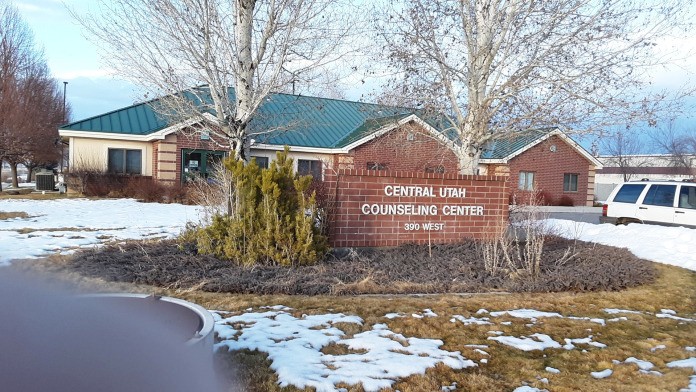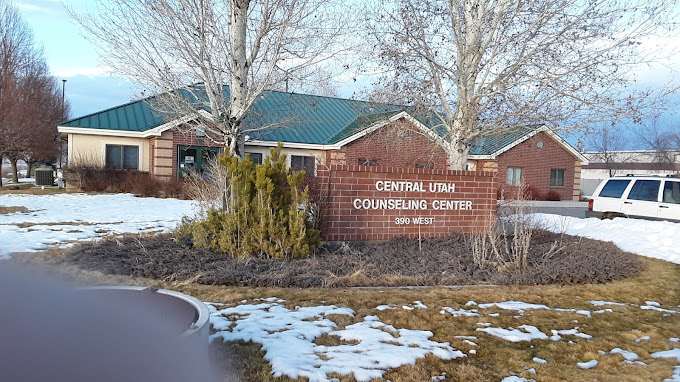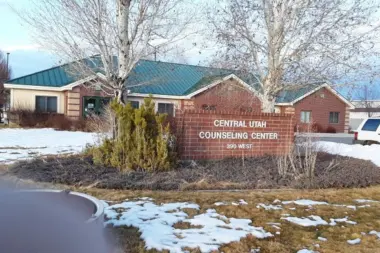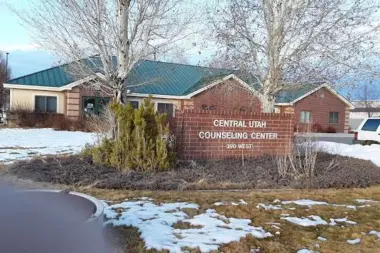They don't care about anyone! your only concern is to charge your insurance to make money, treat people disrespectfully and are hypocritical for pretending that they care about patients but don't. I honestly believe that it is the worst counseling center.
About Central Utah Counseling Center – Ephraim
Their program offers personalized care with treatment plans tailored to your needs. You’ll complete an assessment to determine the best level of care to help you achieve your recovery goals. With various therapeutic interventions, you can participate in group and individual therapy, medication management, skills development, peer support, and more. These approaches motivate change as you recognize underlying behaviors contributing to your addiction and how to address them.
One standout feature is their dedication to serving you in any way. Recovery looks different for everyone. They provide personal services and connect you with family resources to ensure you receive care that sets you up for success in recovery. You’ll also have a case manager to orchestrate services and help you stay on track throughout treatment. After completing care, they further support you with sober living options.
Latest Reviews
Rehab Score
Gallery




Accepted Insurance

Other Forms of Payment
Medicaid is a state based program that helps lower-income individuals and families pay for healthcare. Medicaid covers addiction treatment so those enrolled can use their coverage to pay for rehab. When a program accepts Medicaid the client often pays very little or nothing out of their own pocket.
Private insurance refers to any kind of healthcare coverage that isn't from the state or federal government. This includes individual and family plans offered by an employer or purchased from the Insurance Marketplace. Every plan will have different requirements and out of pocket costs so be sure to get the full details before you start treatment.
Self-pay involves paying for treatment out of your own pocket. You can use savings or credit, get a personal loan, or receive help from family and friends to fund your treatment. If you don't have insurance or your insurance plan doesn't cover a specific program, self-pay can help ensure you still get the care you need.
Financial aid can take many forms. Centers may have grants or scholarships available to clients who meet eligibility requirements. Programs that receive SAMHSA grants may have financial aid available for those who need treatment as well. Grants and scholarships can help you pai for treatment without having to repay.
Medicare is a federal program that provides health insurance for those 65 and older. It also serves people under 65 with chronic and disabling health challenges. To use Medicare for addiction treatment you need to find a program that accepts Medicare and is in network with your plan. Out of pocket costs and preauthorization requirements vary, so always check with your provider.
Military members, veterans, and eligible dependents have access to specific insurance programs that help them get the care they need. TRICARE and VA insurance can help you access low cost or no cost addiction and mental health treatment. Programs that accept military insurance often have targeted treatment focused on the unique challenges military members, veterans, and their families face.
Sliding scale payments are based on a client's income and family size. The goal is to make treatment affordable to everyone. By taking these factors into account, addiction recovery care providers help ensure that your treatment does not become a financial burden to you or your family, eliminating one barrier to care.
Addiction Treatments
Levels of Care
Outpatient Programs (OP) are for those seeking mental rehab or drug rehab, but who also stay at home every night. The main difference between outpatient treatment (OP) and intensive outpatient treatment (IOP) lies in the amount of hours the patient spends at the facility. Most of the time an outpatient program is designed for someone who has completed an inpatient stay and is looking to continue their growth in recovery. Outpatient is not meant to be the starting point, it is commonly referred to as aftercare.
Addiction treatment at an inpatient rehab center is significantly more intensive than outpatient and community-based care. Clients remain at the facility for the duration of their program, though many centers offer supervised group excursions. Inpatient treatment typically consists of extensive psychotherapy, often including group and family counseling. Many programs also prioritize addiction education and recovery-focused life skills training. Holistic therapies, such as yoga, art therapy, EMDR, and meditation, are commonly available as well.
Treatments
Many of those suffering from addiction also suffer from mental or emotional illnesses like schizophrenia, bipolar disorder, depression, or anxiety disorders. Rehab and other substance abuse facilities treating those with a dual diagnosis or co-occurring disorder administer psychiatric treatment to address the person's mental health issue in addition to drug and alcohol rehabilitation.
Mental health rehabs focus on helping individuals recover from mental illnesses like bipolar disorder, clinical depression, anxiety disorders, schizophrenia, and more. Mental health professionals at these facilities are trained to understand and treat mental health issues, both in individual and group settings.
Professional addiction treatment at an alcohol rehab in Utah can help people struggling with alcohol use disorder. This disorder occurs when someone becomes psychologically or physically dependent on alcohol. During treatment, individuals undergo detox to safely withdraw from alcohol. Then, they participate in a customized treatment plan that uses behavioral therapies and support systems to help them move forward in recovery.
When you enter a drug rehab in Utah, the process usually involves four stages: treatment initiation, early abstinence, maintaining abstinence, and advanced recovery. Treatment methods can rely on medications, counseling, or both, in either an outpatient or inpatient setting.
In Utah, individuals looking for substance abuse treatment can find several inpatient and outpatient treatment programs. Typically, you can expect the program to include evidence-based therapies such as cognitive-behavioral therapy (CBT), dialectical behavior therapy (DBT), psychoeducation, skills development groups, and experiential therapies, like equine therapy, and adventure therapy. By receiving expert addiction treatment and learning new coping strategies, you'll drastically improve your mental health and the ability to achieve long-term sobriety.
Programs
Adult rehab programs include therapies tailored to each client's specific needs, goals, and recovery progress. They are tailored to the specific challenges adult clients may face, including family and work pressures and commitments. From inpatient and residential treatment to various levels of outpatient services, there are many options available. Some facilities also help adults work through co-occurring conditions, like anxiety, that can accompany addiction.
Young adulthood can be an exciting, yet difficult, time of transition. Individuals in their late teens to mid-20s face unique stressors related to school, jobs, families, and social circles, which can lead to a rise in substance use. Rehab centers with dedicated young adult programs will include activities and amenities that cater to this age group, with an emphasis on specialized counseling, peer socialization, and ongoing aftercare.
Clinical Services
Cognitive Behavioral Therapy (CBT) is a therapy modality that focuses on the relationship between one's thoughts, feelings, and behaviors. It is used to establish and allow for healthy responses to thoughts and feelings (instead of unhealthy responses, like using drugs or alcohol). CBT has been proven effective for recovering addicts of all kinds, and is used to strengthen a patient's own self-awareness and ability to self-regulate. CBT allows individuals to monitor their own emotional state, become more adept at communicating with others, and manage stress without needing to engage in substance abuse.
During individual therapy, men and women in Utah work with their therapists to build healthier daily habits and create coping strategies to manage stress. These are two components necessary for sustained sobriety and improved overall health.
Community building is an important aspect of group therapy sessions in Utah. The sense of community building among participants encourages more transparent sharing of experiences in a judgment free environment. You create strong bonds with the people in your group that support your journey to recovery.
Staff
Marty Palmer
Juab Commissioner
Vicki Lyman
Millard Commissioner
Sam Steed
Piute Commissioner
Scott Bartholomew
Sanpete Commissioner
Ralph Brown
Sevier Commissioner
Dennis Blackburn
Wayne Commissioner
Contact Information
390 W 100 N
Ephraim, UT 84627










